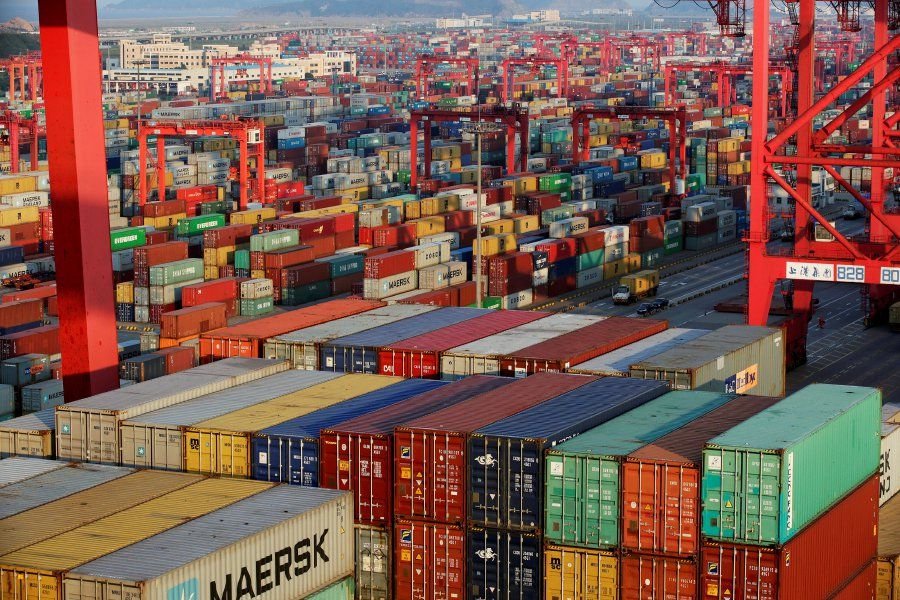The past year has been both unprecedented and extraordinary, and despite the wide-spread devastation caused by the global pandemic, several notable achievements were recorded from the overall performance of the Malaysian halal industry in 2020, as revealed by Halal Development Corporation Berhad (HDC) today.
Malaysia recorded an increase of RM0.2 billion (or 1.25 percent) in domestic direct investment into Malaysian halal parks in 2020, signaling that the local halal industry is still growing, despite the many ongoing challenges.
To date, Malaysian halal parks have attracted a cumulative total of RM16.1 billion in investments since 2011. Of this, RM9.5 billion (or 59 percent) is foreign direct investment (FDI) while RM6.6 billion (or 41 percent) is domestic direct investment (DDI).
A total of 295 companies are currently in operation throughout the 21 halal parks across Malaysia, with 42 companies (or 14.3 percent) being multinational corporations (MNCs), while 253 companies (or 85.7 percent) are locally-owned corporations.
At the global arena, Malaysia once again emerged highest in the annual Global Islamic Economy Indicator (GIEI) for year 2020/21, its eighth year in a row, when it came out tops in four out of six categories, including for Halal Food, Islamic Finance, Muslim Friendly Travel, and Pharmaceutical & Cosmetics sectors.
Malaysia was also ranked second and fourth in the Media & Recreation and Modest Fashion sectors respectively, in the annual State of the Global Islamic Economy (SGIE) Report produced by international strategy research and advisory firm DinarStandard.
As the world grinds to a halt throughout the most part of last year, with travel restrictions imposed limiting not only the movement of people but also goods, Malaysian halal exporters had to rely on their old regional trading partners, including Singapore, Indonesia and Thailand for support.
Based on HDC’s proprietary data sources and analysis for 2020, in terms of bilateral trade, Singapore emerged as Malaysia’s biggest importer of halal products in 2020. With a total export value of RM4.10 billion, the city-state relegated China’s RM3.44 billion to second spot, while the United States of America came in third with RM1.74 billion.
Two other Malaysia’s neighbors, Thailand (RM1.48 billion) and Indonesia (RM1.34 billion), both came in fourth and fifth respectively, and was able to somewhat cushion the full economic impact from the border closures, which saw Malaysian halal exports contracting approximately RM10 billion in total, reduced from RM40.2 billion in 2019 to just RM30.5 billion for the whole of 2020.
The reduced of halal export value also corresponds to the 19 percent reduction in the number of Malaysian halal exporters, from 1,876 in 2019 to 1,507 in 2020. Aside from the movement control orders (MCO), this drop also corresponds to the timeline of system upgrade for halal certification process, in order to facilitate online renewals and virtual submissions of supporting documents.
In terms of sectoral contribution, Halal Food & Beverages continues to be the main contributor to Malaysian halal economy with RM17.40 billion in total value, followed by Halal Ingredients (RM8.83 billion), Cosmetics & Personal Care (RM2.67 billion), Palm Oil Derivatives (RM0.89 billion), Industrial Chemicals (RM0.47 billion) and Halal Pharmaceuticals (RM0.30 billion) in second to sixth respectively.
Hairol Ariffein Sahari, HDC’s chief executive officer said, “Although it was originally forecasted that Malaysia’s annual halal exports would reach an estimated RM42 billion by 2020. However, seeing the fact that 2020 has been an exceptionally challenging year, with the volatility of global oil prices and the ongoing war on Covid-19 taking precedence.”
He added, “Despite these uncertainties however, the Malaysian halal industry continued to show unbridled resilience, thanks largely to its strong fundamentals. At HDC, we see that there is much headroom for growth, especially within the landscape of home-grown Malaysian exporters, and we intend to further augment the Malaysian halal market share via strategic programmes amidst these challenging times.”
As an agency under the Ministry of Trade and Industries (MITI), Hairol said HDC will strive to fulfill its main mission to facilitate the onboarding of industry players into the halal economy, as well as to increase Malaysia’s total halal exports and total direct investments into Malaysian halal parks.
Several initiatives have been lined up for this purpose, including the introduction of the HDC’s commercial units Halal Parks, Halal Integrated Platform (HIP), Halal Training Institute and Halal Consultancy & Advisory to attract at least 50,000 Small and Medium Enterprise (SME) companies to come onboard into the industry.
A new Halal Park Standard is also in the works and will be introduced by HDC later this year as a way to establish a more standardised Halal Park operational standards. “As space in Malaysian halal parks are becoming more limited, we realised we needed a new integrated model that is smarter to be the foundation for the development of new Halal Parks in Malaysia,” Hairol said.
HIP is introduced as the digital halal ecosystem community where HDC is partnering with financial institutions to provide special financing facilitation to Malaysian SMEs. HIP can also even be used for training, advisory and consultancy services, job matching, licensing technology, business intelligence reports, financial assistance, and insurance.
As Muslims have become increasingly mobile due to the need to travel for work or pleasure, there is an increased need for Shariah-compliant products and services that cater to this niche market, particularly in the non-Muslim countries. To address this, HDC is introducing Muslim Friendly Guidelines for hypermarkets, marts, or restaurants overseas to adopt to enable these businesses to cater or to sell halal products. The availability of this business access will allow Malaysia’s halal products to be marketed internationally subsequently, increase our halal export.
In term of industry talent and experts, HDC has trained 2,337 personnel in Halal management training programmes in 2020 and making it a total of more than 60,000 personnel trained since 2011.
Source : Bernama


